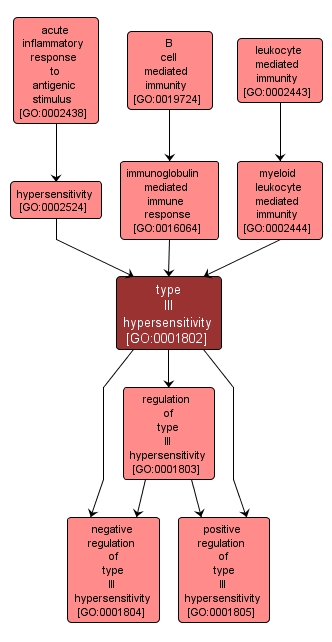GO TERM SUMMARY
|
| Name: |
type III hypersensitivity |
| Acc: |
GO:0001802 |
| Aspect: |
Biological Process |
| Desc: |
An inflammatory response resulting from recognition of immune complexes via complement or Fc receptors on effector cells leading to activation of neutrophils and other leukocytes and damage to bystander tissue. |
|

|
INTERACTIVE GO GRAPH
|














